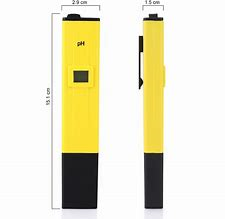I’ve been using using my water report and using 1/3 RO water to formulate what salts and amount of acid to use looking to get close to 5.4 pH as I don’t have a meter. It’s worked rather well. Now I am using 100% RO water as the kitchen sink doesn’t have a way to attach the Pur filter. Google states neutral water is 7, but that it says that it can be as low as 5. I bought some plastic pH strips that test from 4.5 to 9 and work in 0.25 increments but I’m told these still are not accurate (which is fine as long as I’m close enough). I figure it’s best to just get the real deal, and would like to add it to my Christmas list.
Ultimately I want something that’s fairly accurate and durable, but don’t want an expensive model. What is there that I should direct SWMBO to look at (preferably on Amazon) that’s under $75?
Ultimately I want something that’s fairly accurate and durable, but don’t want an expensive model. What is there that I should direct SWMBO to look at (preferably on Amazon) that’s under $75?








































![Craft A Brew - Safale BE-256 Yeast - Fermentis - Belgian Ale Dry Yeast - For Belgian & Strong Ales - Ingredients for Home Brewing - Beer Making Supplies - [3 Pack]](https://m.media-amazon.com/images/I/51bcKEwQmWL._SL500_.jpg)

















